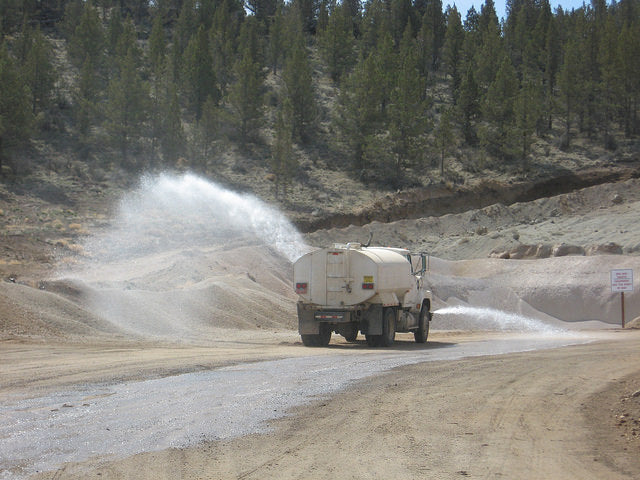
Wastewater from Oil and Gas Operations not Ideal for Suppressing Dust on Roads
By Dan DeBaunShare
Thirteen US states allow wastewater from oil and gas operations to be applied to roads as a dust suppressant or deicing mechanism. However, a study that was recently published in Environmental Science & Technology suggests that using oil and gas wastewater as a dust suppressant is far from ideal and that there is a need for a safer, non-toxic yet affordable alternative.
The researchers assessed state regulations pertaining to the use of wastewater for deicing and dust suppression and found that thirteen states permitted its use for this purpose, while four others could allow it to be spread on road surfaces under regulations related to land spreading.

The oil and gas wastewater used for deicing and dust suppression on roads originates from conventional vertically drilled oil and gas wells as apposed to fracking fluids used in the hydraulic fracturing oil extraction process.
"Oil and gas wastewaters are known to have high salt, organic and radioactivity concentrations," said lead author, Travis Tasker, a graduate student in environmental engineering at Penn State. "When we found out that this wastewater was being spread on roads, we wanted to evaluate its potential to cause biological toxicity and accumulate in road material or migrate into water resources."
Oil and gas wastewater is loaded with salt, containing high levels of sodium, magnesium, calcium and strontium, which make it effective at suppressing dust and deicing roads. It also contains other toxic contaminants — such as radium, a known carcinogen — that can be harmful to the environment and/or human health, especially in large concentrations.
"We would like to do experiments to test how effective the wastewaters are at suppressing dust in comparison to other commercial products," said Nathaniel Warner, assistant professor of environmental engineering, Penn State. "If the salts in the wastewaters are just as effective, then new regulations or additional treatment prior to spreading could help reduce the concentration of other contaminants of concern that exist in wastewaters, but not in commercial products."
The research team sampled wastewater spread on roads in towns in Pennsylvania and then did laboratory simulations to determine where the pollutants in the wastewater would end up. The lab experiments showed that while rain washed salts off the road surface, some heavy metals such as lead did not wash away but rather remained behind, And in the case of radium, some of it is washed away during rain events, but some remained on the road surface.

Radium, heavy metals and organic materials are all contaminants that could potentially pollute surface water and groundwater systems, and ultimately drinking water supplies. Salt is also a drinking water contaminant when it occurs at high concentrations.
Yet while conventional methods used to treat wastewater can remove a number of these contaminants, it cannot reduce the level of salt. The researchers recommend that if wastewater is used as a deicing or dust suppressing agent on roadways it should at least be treated to remove radium and organic materials before it is applied to road surfaces. However, they would prefer to see alternative cost-effective alternatives being developed to replace wastewater use on roads, as the alternatives currently available are too costly for many municipalities to afford, meaning they either have to use oil and gas wastewater to treat roads or not treat the roads at all.
Journal Reference
T. L. Tasker, W. D. Burgos, P. Piotrowski, L. Castillo-Meza, T. A. Blewett, K. B. Ganow, A. Stallworth, P. L. M. Delompré, G. G. Goss, L. B. Fowler, J. P. Vanden Heuvel, F. Dorman, N. R. Warner. Environmental and Human Health Impacts of Spreading Oil and Gas Wastewater on Roads. Environmental Science & Technology, 2018; DOI: 10.1021/acs.est.8b00716
-
Regular price From $302.00 USDRegular priceUnit price / per
-
Regular price $234.00 USDRegular priceUnit price / per
-
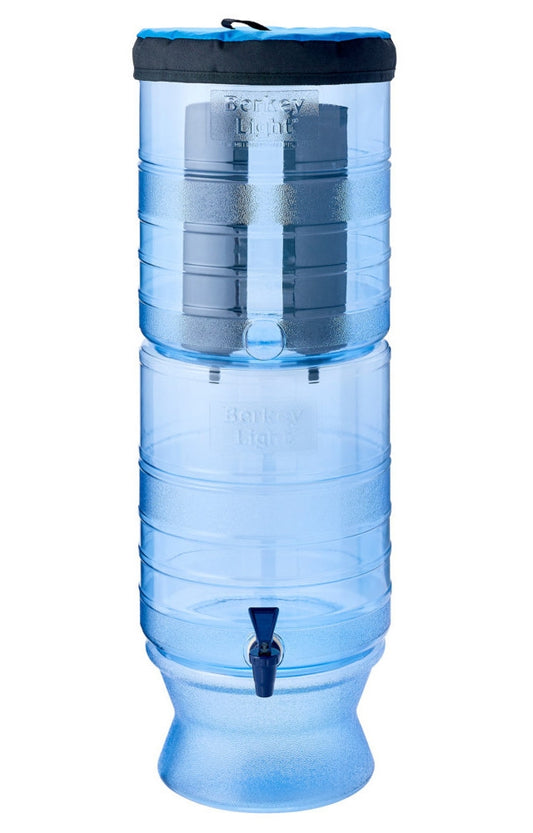
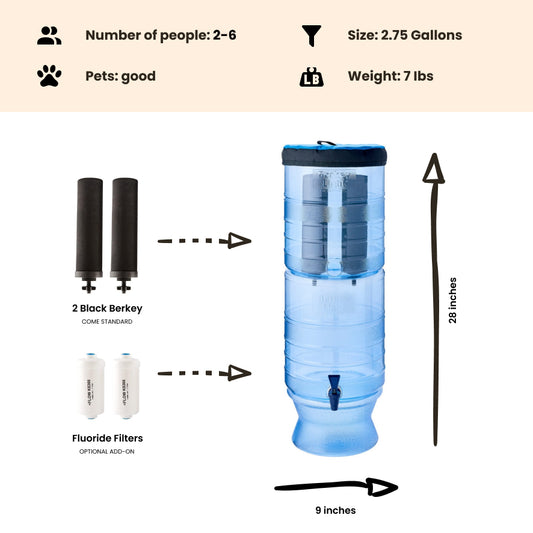 Sold outRegular price From $305.00 USDRegular priceUnit price / per
Sold outRegular price From $305.00 USDRegular priceUnit price / per -
Regular price $327.00 USDRegular priceUnit price / per
-
Regular price From $367.00 USDRegular priceUnit price / per
-
Regular price From $408.00 USDRegular priceUnit price / per
-
Regular price From $451.00 USDRegular priceUnit price / per

Dan DeBaun
Dan DeBaun is the owner and operator of Big Berkey Water Filters. Prior to Berkey, Dan was an asset manager for a major telecommunications company. He graduated from Rutgers with an undergraduate degree in industrial engineering, followed by an MBA in finance from Rutgers as well. Dan enjoys biohacking, exercising, meditation, beach life, and spending time with family and friends.
~ The Owner of Big Berkey Water Filters

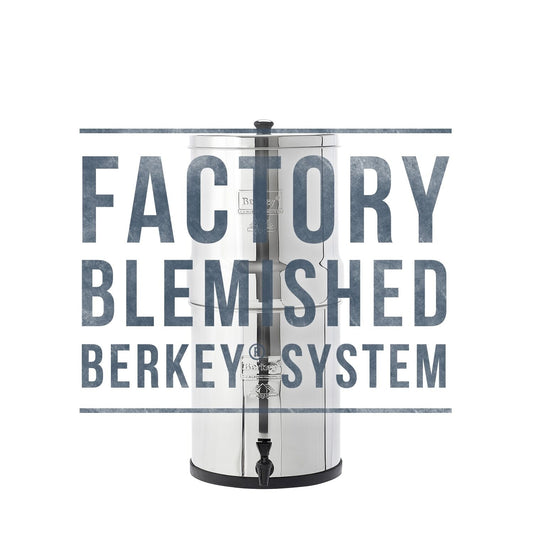
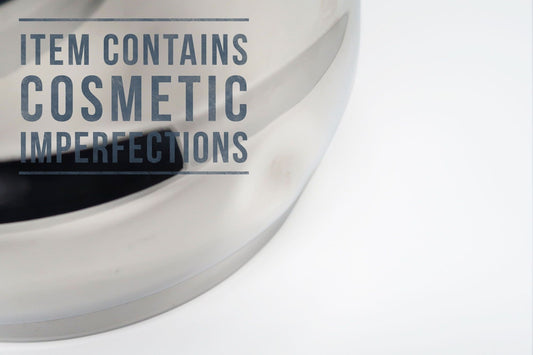








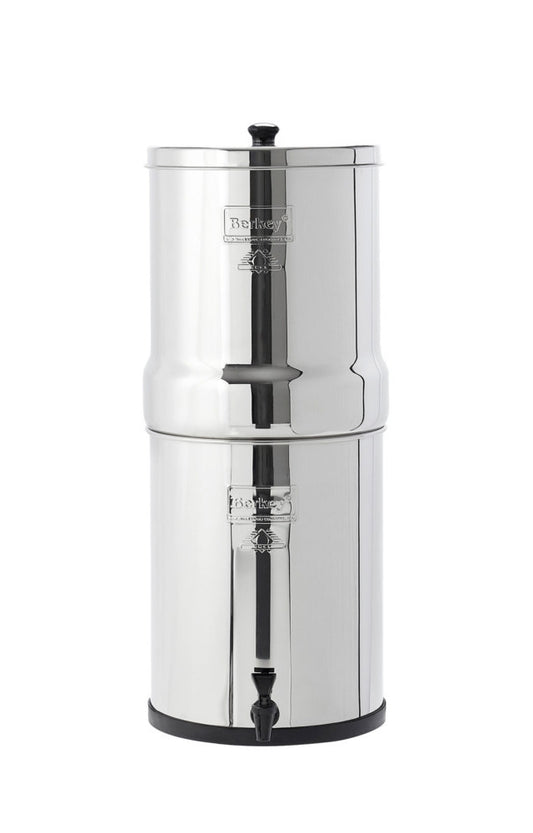
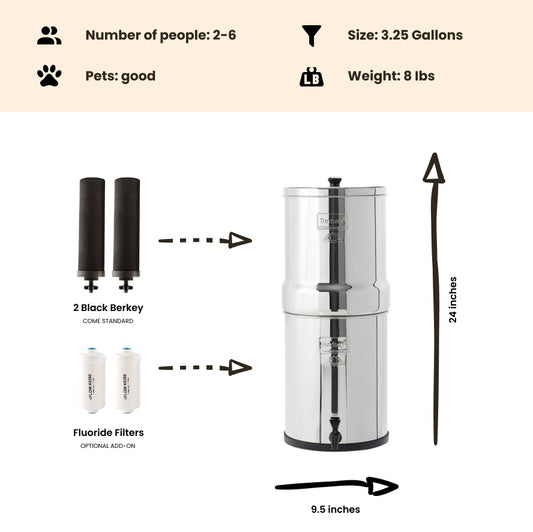



Love my Berkey! Couldn't enjoy peace and clear water without it!